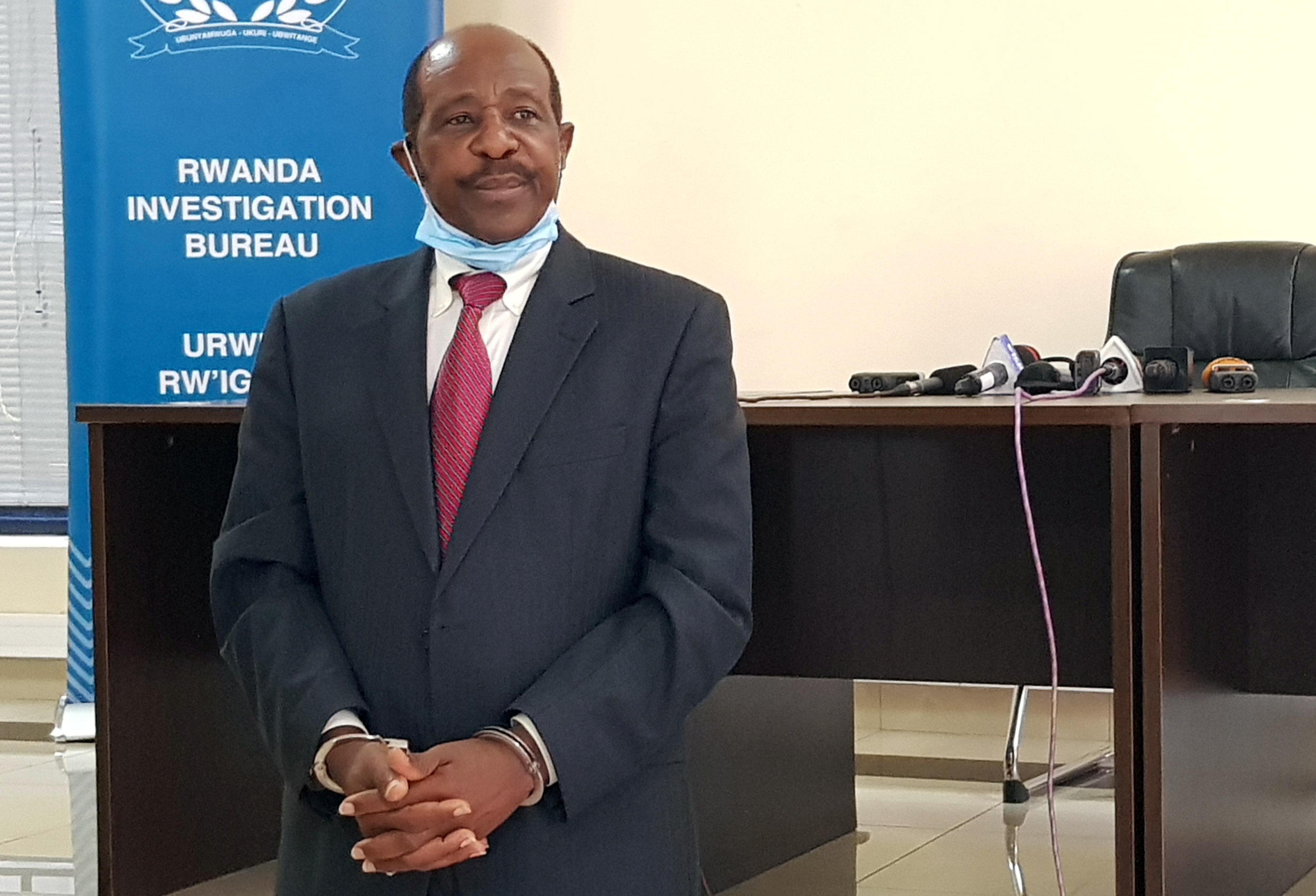
Willie R. Tubbs, FISM News
[elfsight_social_share_buttons id=”1″]
The man whose heroism inspired the critically acclaimed, Oscar-nominated film “Hotel Rwanda” has been convicted of terrorism in his nation, but this is far from a simple matter of guilt or innocence.
On Monday, Reuters journalist Clement Uwiringiyimana reported that Paul Rusesabagina, a former hotel manager who housed Hutu and Tutsi refugees in his hotel during the Rwandan Genocide of 1994, was convicted on eight charges that ranged from terrorism and arson to taking hostages.
He was acquitted on a ninth charge of forming an armed rebel group.
Rusesabagina is perhaps best known internationally for having been portrayed by Don Cheadle in “Hotel Rwanda,” but in subsequent years, Rusesabagina became a political activist and vocal opponent of longtime Rwandan President Paul Kagame. Specifically, Rusesabagina penned an autobiography in which he referred to Kagame as a dictator.
“This denunciation kicked off an industry of revisionist criticism of the film, all of it emanating from the Rwandan government and its allies,” Terry George, who wrote “Hotel Rwanda,” wrote in a piece for ForeignPolicy.com. She further argues that Kagame had only soured on Rusesabagina and the film after Rusesabagina became critical of the president.
George concluded, “[Kagame’s] subsequent about-face and knee-jerk reaction to Rusesabagina’s criticism only highlight the lengths to which Kagame will go to maintain control of all aspects of life in his troubled country. The long-suffering people of Rwanda deserve so much more from their president, their government, and their diplomats.”
However, ForeignPolicy.com also contains an article from February in which Rwandan Ambassador to the United States Mathilde Mukantabana describes Rusesabagina as a terrorist and the movie as inaccurate. Naphtal Ahishakiye, the executive secretary of the Rwandan genocide survivor organization Ibuka, also told Reuters Monday, “[Rusesabagina] dramatized his deeds in a film and won awards he did not deserve.”
Rusesabagina is a leader in the Rwanda Movement for Democratic Change, a group opposed to Kagame that also has a militant wing known as the National Liberation Front. Both Rusesabagina and a spokesman for the National Liberation Front each denied Rusesabagina’s involvement in the armed wing, but the Rwandan court ruled the two groups were indistinguishable.
As reported by the German news site DW.com, who refer to him as “Rwanda’s benevolent dictator,” Kagame has led a strong Rwandan economy, attracted industry to the nation, and championed women’s rights. However, he also has a reputation for silencing critics and is well known for his desire to remain in power through militarism.
Kagame has been president of Rwanda since April 2000 but has been viewed as the nation’s de facto leader since 1994, a year of infamy in the history of Rwanda.
He rose to power following a bloody conflict in April-through-July 1994, when armed Hutu militants swept through Rwanda killing native minorities, primarily the Tutsis as well as some moderate Hutus. At least 1.6 million ethnic minorities were killed during this period.
During this time, Rusesabagina housed some 1,200 refugees in the Hôtel des Mille Collines in Kigali, Rwanda’s capital city.
Kagame had initially come to prominence when heled Rwandan Patriotic Front, an armed rebel force that had sparked civil war by invading Rwanda from Uganda in 1990. Fighting resumed for many years and Kagame rose to power following after he helped oust the militias responsible for the genocide.
Fighting resumed in 1996, when Kagame ordered Rwanda to invade neighboring Zaire (now the Democratic Republic of the Congo), where Habyarimana and the militias had fled, to exact revenge.
The genocide is still prominent in Rwandan society. The nation holds two holidays a year in which it memorializes the events of 1994.
It is also illegal to deny that the genocide occurred or to foment divisiveness. The latter of these is the law under which Rusesabagina has been prosecuted.
Rusesabagina, a citizen of Belgium who lived in the U.S., had not been to Rwanda in recent years.
According to Reuters, Rusesabagina’s supporters say he was arrested only after being tricked into visiting his home nation when he boarded a plane he believed was bound for Burundi.
